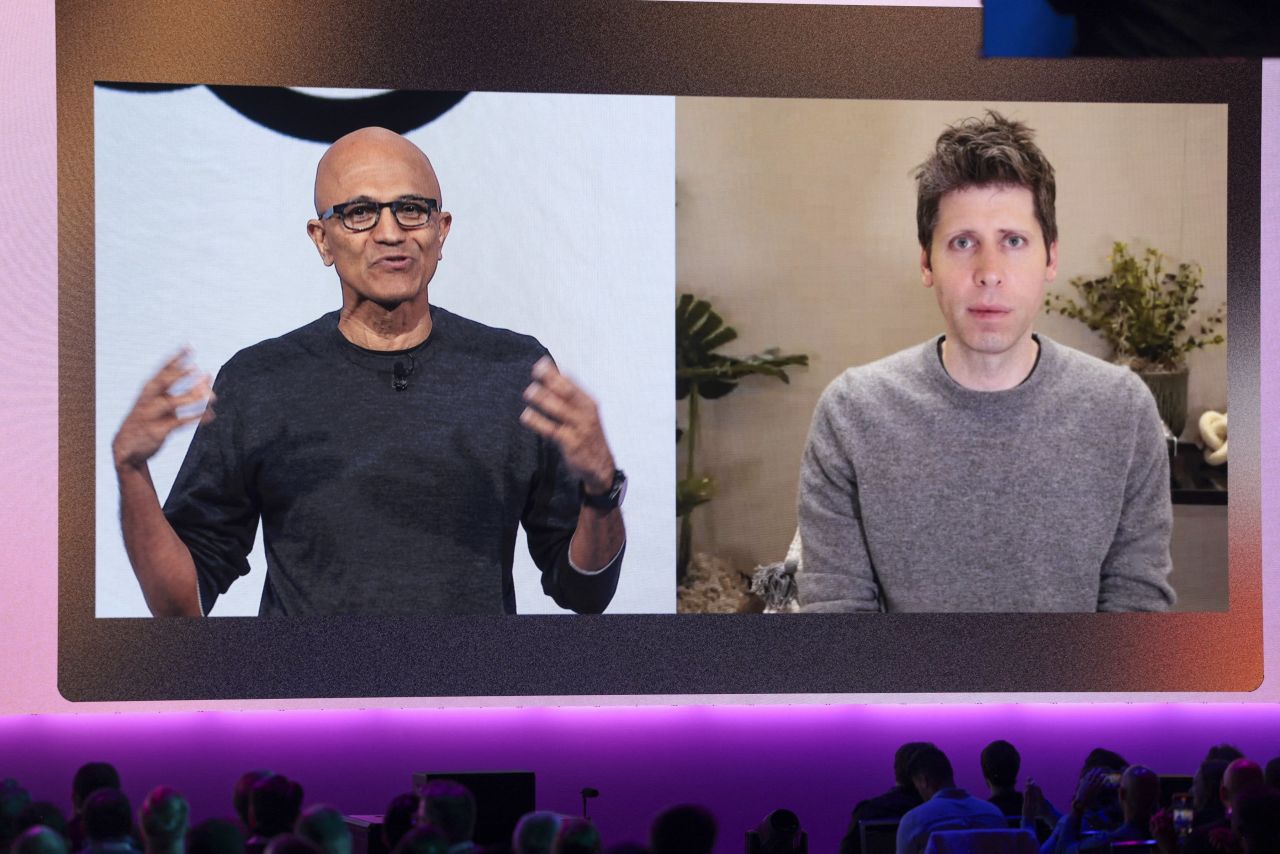
The future of the collaboration between OpenAI and Microsoft—a key chapter in technology’s annals—rests partly on interpreting a vague AI term that sparks division among numerous professionals in the field.
The agreement between the technology collaborators, who have been locked in acrimonious negotiations states that once OpenAI’s systems achieve "artificial general intelligence," or AGI, the company will have the ability to restrict Microsoft’s access to its subsequent technologies. Microsoft is strongly opposing this measure.
Numerous AI specialists view AGI as the moment when generative AI systems reach human-like cognitive abilities; however, OpenAI and Microsoft hold differing views on this topic. According to sources privy to internal discussions, OpenAI leaders such as Sam Altman think they're nearing the capability to assert that their AI tools have attained an AGI-level skill set.
The CEO of Microsoft, Satya Nadella, has shown doubt about the possibility of achieving such an milestone. disagreement mirrors a debate Among Silicon Valley’s top tier about just how advanced state-of-the-art technologies can get.
"We share a lengthy, fruitful collaboration that has provided exceptional AI tools for all. Negotiations are currently underway, and we remain hopeful about continuing our joint efforts for many more years," stated officials from both organizations.
The two companies are working to renegotiate their commercial agreement as OpenAI seeks to convert itself into a for-profit company. The conversion will unlock tens of billions of dollars in new funding to advance its artificial intelligence tools.
Today, Microsoft requires OpenAI to sell its AI software exclusively through Azure—a restriction from doing business with other cloud providers that few other AI developers face. Microsoft, which integrates OpenAI’s latest technology across many of its major products, also controls OpenAI’s intellectual property.
In recent negotiations, Microsoft has indicated that it is willing to accept an equity stake of about 35% in the new for-profit company, people familiar with the matter said.
The potential for an AGI gap casts a shadow over talks between the two firms.
Altman has said AGI, which his company defines as “highly autonomous systems that outperform humans at most economically valuable work,” is just around the corner.
Microsoft’s Nadella has been more critical. “Us self-claiming some AGI milestone, that’s just nonsensical benchmark hacking,” he said on a popular tech podcast in February. The comments surprised some OpenAI officials, who said Nadella was once described by Altman as an “AGI believer.”
OpenAI executives have discussed the possibility of declaring AGI through an AI coding agent that exceeds the capabilities of an advanced human programmer, people familiar with the matter said.
The agreement mandates merely that OpenAI’s board assert the presence of AGI sincerely; however, this might prompt Microsoft to potentially litigate against the firm, thereby inviting a protracted legal dispute.
OpenAI can also declare a higher tier of AGI, called “sufficient AGI,” when its AI systems are financially capable of paying Microsoft the future profits to which it is entitled. Microsoft has to sign off on sufficient AGI, at which point OpenAI would get the right to sell or license all of its technology to other cloud providers.
According to individuals knowledgeable about the situation, Microsoft is barred from independently working on artificial general intelligence (AGI) due to terms outlined in their agreement, which extends until 2030. As OpenAI's primary external investor, Microsoft holds the power to reject significant funding choices that would reduce its ownership stake.
Some Microsoft executives objected to including the AGI clause when the partnership was first negotiated in 2019, believing that it was arbitrary and unenforceable. But the company was so behind on AI at the time that Nadella agreed to it, according to people familiar with the matter.
Microsoft aims to eliminate this clause completely from the agreement during its latest discussions, or to obtain sole rights to OpenAI’s intellectual property even when advanced general intelligence is achieved.
Send the letter to Berber Jin berber.jin@wsj.com